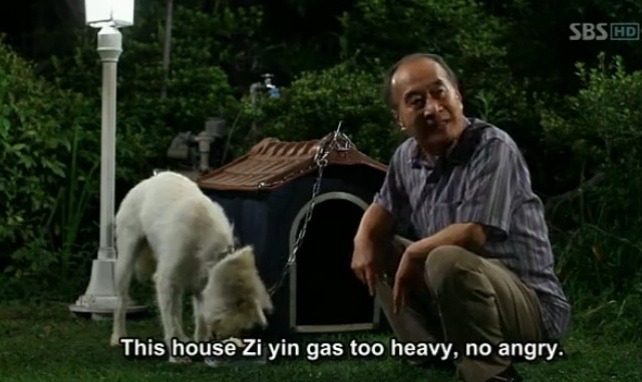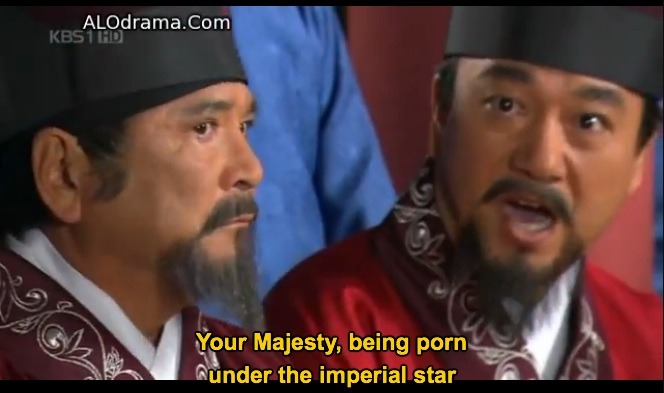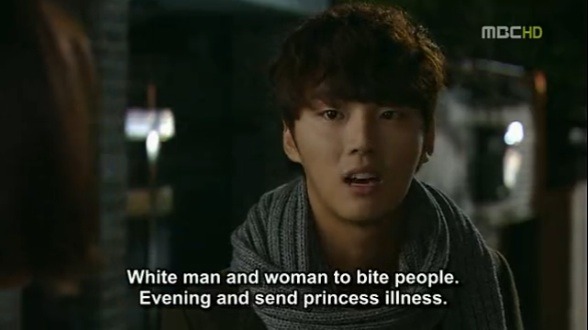 G for Gaksital
G for Gaksital
Lost in Translation
I’m going to make the assumption that people who are reading this are either English speakers or can read English and that Korean isn’t their first language. But don’t we wish it was. We wouldn’t have to wait for subs, and we could watch dramas that aren’t “trendy". Remember how long it took for someone to sub Answer Me 1997? Sigh.

So here we are: a bunch of English readers and non-Korean speakers watching Korean Dramas with English subtitles. I don't know about you, but I sometimes wonder if I'm missing something (like it wasn’t enough to miss out on their pop culture references and traditions). Sure, when I first started watching there were the obvious questions. “What the hell is an 'oppa'? Is he her boyfriend, friend or brother? What?” But as you continue watching dramas you pick up on customs and references. In Flower Boy Ramyun Shop, for example, I knew why it was cringe-worthy for her to call him 'Oppa' in episode one where she didn’t know that not only was he younger than her, but he was also a student at the school where she teaches. Oh you poor girl... Shame. And to laugh out loud when future Mi-rae in Marry Him If You Dare called her present brother 'Oppa'.
A first time watcher might not get that or its relevance to the character/story/joke. However, sometimes the subtitles are so awesome they help you through. I loved it when I first started watching dramas on a now-long-gone-site that had subtitles on the bottom and definitions on the top when needed. Words like "unnie", "oppa", and "appa" were all made clear.
However not all subs were so... helpful.
I swear when watching a drama the following subs were presented:
“You know why you didn’t win?”
“Why?”
“Because you don’t have ______”
“And you have ____?”
“Yes. I have ______”
“How do I get _____”
“You just have it.”
And I swear to God this happened in the next episode.
“I was thinking about what you said. How I don’t have ____”
“Yeah.”
“I think I can achieve ____”
To this day I don’t know what "blank" is.

These bad subtitles aside, I feel there are two types of translations. The "Literal Translation" or the "Modified Translation".
The first is a direct translation of the script, and the other modifies the script to make sense in English. Google translate is an example of a site that uses direct translation. English is not my first language so when I do see subtitles for my mother tongue I do become really critical and judge it. Other synonyms could be used that would make more sense and change the tone. And that’s the thing. A single word changes everything. A tone can go from being sweet to being creepy with a single word.
While watching a film in my native tongue, the male lead asked the engaged female lead in modified translation: “Do you have the courage to have an affair with me?” This was a scene where he was asking her rhetorically what she would do if she was in love with him and he in love with her. Would she marry her fiancé, whom she doesn’t love, or be with him (the male lead)? The word affair sets a tone and a mood. The word has a negative impact and is quite taboo. We think adultery and lust when we think of the word affair in this sentence. So it seems like the hero is asking his lady if she wants to have an affair with him behind her fiancé’s back. In the literal translation, he means this: “Do you have the courage to love me?” Yep. It's a different tone altogether. Here it seems like the hero is asking his lady to love him and not marry the person she is not in love with. It almost comes out as a confession from your male lead.
However, this doesn’t mean literal translation is the best.

Okay, I get what he really means in the above anime, but... yeah. Let’s modify that. Let’s face it, we don’t need the literal translation of that one. Not every word means the same thing in each language. Heck, even in the English language a word means something else in another English-speaking country. When a British girl says, “He’s fit”, she is not talking about his physical health. A translation of that would be “He’s hot.” A ‘thong’ means something else in Australia than other countries and we get laughed at by other countries for saying “I left my thongs at the beach.” Then again, we laugh at Americans when they used the word ‘root’ in a way to cheer someone while Down Under that means something else. And that’s just the English language. So it is nice to have subbers modify the text so we can understand it in our part of the world and still feel a part of their world.
Sure, we might miss something, but we can at least understand what’s going on. Maybe what we miss isn’t that important, and maybe it makes it better. Like what was said before, Literal Translation was about tone while Modified Translation is about flow. Even though a word may be the direct translation, it could either
- not fit in the sentence, making it awkward
- be old fashion and not fit into the modern lingo, or
- there is a better synonym that flows with the dialogue.
Modified translation is, in my opinion, the best subs for beginners. These subs replace ‘oppa’, 'unnie', or 'noona' etc, with the character's name. Therefore, you’re not sitting there confused or believing that the old man’s name is 'Ajusshi'.
I don’t know if this is true, but I feel that Dramafever uses modification translation. For some reason, I always feel that I’m missing something and that it’s too polished. Then I read recaps, and the dialogue is different from the subs. So whose translation is truer to the material? And why are Viki and Dramafever subs different? Which one is right (if there is a right)?
There are many times when I watch movies and dramas in my language and judge the subtitles and how they could be structured better. When I think about that, I think about Kdramas. How much have I missed? How many characters have I judged for saying the wrong thing when really it was just bad subs? It makes me nervous.
So which one do I prefer?

A good thing is that because English is not my first language I can relate to ‘weird’ sayings and meanings because each language and culture has its own quirks. I understand the speech differences between talking to elders and people lower than you, talking about someone without stating their sex (instead of he or she using a word similar to ‘they’ but for one person), and just the little quirks you learn from other languages.
However, there is so much I still don’t get, and am scared I’m missing something in the translation. So for me, I like a little bit of both. As an experienced kdrama watcher, I do get annoyed when they replace oppa with the name of the guy because I now know what it means and just the word ‘oppa’ means so much in itself. I do, however, love when there is a word and a ‘*’. The ‘*’ is usually connected to the word and above is the meaning. Example: Unni* (older sister/girl called my younger females). Personally, I like the literal translation with explanation.
What do you think? Which one do you like? What were the worst subs you ever seen? And who does the best subs? PLEASE TELL ME!!!!










